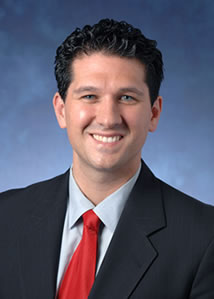South San Francisco, CA July 3, 2018 By San Mateo County Supervisor David Canepa

SMC Supervisor David Canepa
“Dummies: Learning Made Easy” is an integral tool many college students use to keep up with their studies. The little black and yellow how-to books simplify Shakespeare, parenting, spelling and even relationships.
There are apparently 300 million Dummies how-to books in the world but not a one that explains the San Mateo 101 Managed Lanes Project and how an express lane operates.
So, here’s the project as I see it in its simplest form.
An express lane is a toll lane. Or, a toll lane is an express lane.
It’s that simple but advocates for the managed lanes project will never say “toll.”
Why? Because the phrase toll does not poll well with voters.
Currently, the state Department of Transportation, San Mateo County Transportation Authority and City/County Association of Governments of San Mateo County are partnering on the $534 million “Managed Lanes Project.”
The project proposes to transform two lanes in both directions on a 22-mile stretch of Highway 101 between Whipple Avenue in Redwood City to the Interstate 380 interchange in San Bruno into what are being called “express lanes.”
An express lane is a hybrid carpool lane and a toll lane that allows solo drivers to use it for a fee.
Carpool lanes are great because they fit more people into less vehicles. Toll lanes allow solo drivers the alleged reward of a quicker commute at a price.
Toll lanes neither reduce congestion nor reduce greenhouse gas emissions.
Think about that over the July 4 holiday, when a record 39.7 million Americans will drive 50 miles or more away from home, according to the American Automobile Association.
Analytics company INRIX predicts travel times in the most congested U.S. cities could be twice as long as normal with Tuesday, July 3 being the busiest driving day of the year.
Then consider Silicon Valley is predicted to add more than 100,000 new jobs in the next few years. Where these new workers will live is anybody’s guess but how they do their work will either lead to greater headaches on the highways or to other more innovative solutions.
I was struck by an opinion piece in the Daily Journal by San Mateo resident Anna Kuhre titled “A solution to Silicon Valley traffic jams: a 24-hour work culture.”
Kuhre, inspired by a 2014 Metropolitan Transportation Commission study titled “Make Every Day ‘Columbus Day’ in the Bay Area,” argues that redistributing the workforce will greatly reduce congestion.
The MTC study states that 3 percent to 5 percent lower traffic demand on the October holiday yields 50 percent to 70 percent less delay.
So how do we make every day a holiday? The MTC doesn’t really answer that question in its report but Kuhre attempts to.
The work week must be redefined, she said.
Staggered work hours, flex-time, compressed work weeks and telecommuting are simple, nearly no-cost solutions that will greatly reduce travel times on highways during peak commute hours.
Millennials desire work cultures that allow them flexibility and environments that allow them to create freely, Kuhre said.
So, who are we building our futures for? Are we building it for aging Baby Boomers who paved the way for today’s obsession with cars or for millennials, who want flexibility in when and where they work?
The millennial work culture is different from preceding generations. Forward thinking Silicon Valley companies that recognize this difference and capitalize on this new way of working will be ahead of the game. Companies need to modify conventional work standards because millennials are looking for something different, Kuhre said.
Remember, according to the MTC, removing 5 percent of vehicles off our highways during peak commute times reduces delays by up to 70 percent. It’s called the “Columbus Day Effect.”
Keep that in mind during the Independence Day holiday when more cars than ever will be on our highways polluting the Bay Area’s clean air.
As a member of C/CAG, I have made it clear to my colleagues that I support carpool lanes on Highway 101. I have also made it clear that I do not support toll lanes because of equity issues and the negative impacts on the environment.
I believe in putting more people in less vehicles and toll lanes do not achieve this goal, rather they encourage solo driving.
So, the next time you hear someone say “express lane,” remember that they are really saying “toll lane.”
Thank you “Dummies” how-to books for inspiring me to make learning easy.
David J. Canepa is a member of the San Mateo County Board of Supervisors and is the former mayor of Daly City.